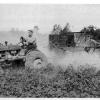File Submitter: superaben
File Submitted: 25 Aug 2012
File Updated: 26 Aug 2012
File Category: Reference Books (topx)
Author: Alexander Shields
e-Sword Version: 9.x - 10.x
Alexander Shields remains one of the most reliable Scottish Covenanters. Alongside of other firsthand writers, David Calderwood, John Knox, and George Buchanan, Shield’s history of the church of Scotland forms a source.
Shields was born around 1660. During the Glorious Revolution, he joined on the side of William and Mary. After the war subsided, he became minister at St. Andrews, but was sent as a deputation to the Scottish settlement at Darien in the Americas. He died of fever in Jamaica.
A Hind Let Loose remains Shield’s most well known work. It was published to reject many of the false claims about the Scottish reformation, as well as to explain their positions.
From the Preface:
“Presuming it is thy desire to answer the holy and honourable designation I accost thee with, I shall take the confidence to assure thee, it is my design to answer, in some measure, the expectation which the title of this treatise would offer, in the hope that, wherein I come short (as I indeed confess not only my jealous fears, but my sensible conviction of my insufficiency for such a great undertaking) thy Christian tenderness will impute it to my weakness, and not to any want of worth in the cause I manage, which is truly worthy, weighty, noble and honourable, in the esteem of all the lovers of Christ, that have zeal for his honour in exercise; and therefore as it gives me all the encouragement I have, in dependence on his furniture whose cause it is, to make such an essay, so it animates my ambition, albeit I cannot manage it with any proportion to its merit, yet to move the Christian reader to make enquiry about it, and then sure I am he will find it is truth I plead for, though my plea be weak.
“The design then of this work is of great importance, even no less than to essay the discussing the difficulties of all our conflicts with open enemies, about the present state of the testimony; the vindicating of all the heads of sufferings sustained thereupon these twenty-seven years past; the proposing of the right state of the testimony for the interest of Christ, not only of this, but of all former periods, with an account of the propagation and prosecution of the witnesses, wrestlings, and sufferings of it from time to time, to the end it may appear, not only how great the sufferings have been, since this fatal catastrophe and overturning of the covenanted reformation, and unhappy restoration of tyranny and prelacy; but that the grounds upon which they have been stated, are not niceties and novelties, (as they are reproached and reprobated by many), but worthy and weighty truths of great value and validity, and of near affinity unto, and conformity with the continued series and succession of the testimonies in all former periods. So that in this little treatise must be contained a compendious history of the Church of Scotland, her testimony in all ages, a vindication of the present state of it; yea, in effect, a short epitome of the substance of those famous forecited authors, as far as we need to consult them, concerning the controversies of the present time with adversaries; which is much, and perhaps too much, to be undertaken in so small a volume. But considering that many who are concerned in this cause, yea the most part who concern themselves about, are such who have neither access, nor time, nor capacity to revolve the voluminous labours of these learned men for light in this case, I have done best to bring them into one body of portable bulk with as great brevity as could consist well with any my measure of perspicuity, not meddling with any thing but what I thought might some way conduce to clear some part of the present testimony.”
Click here to download this file






 Find content
Find content Male
Male

 Posted by
Posted by 
